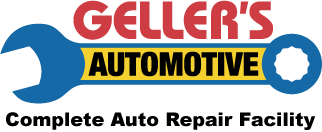
Staying on top of regular maintenance is critical if your goal is to own your vehicle throughout its entire lifespan. However, even the best maintained vehicle is not immune from eventual problems. As your vehicle ages, there are various issues that you may experience within the major vehicle systems because of regular wear and tear. In this month’s blog post, we examine the common issues that you should anticipate with your older model vehicle and ways to stay ahead of major repairs.
Culprits of Age – Heat, Friction, and Corrosion
Heat, friction, and corrosion are significant challenges with aging vehicles.
- Heat: Your vehicle’s engine produces a high amount of heat. While most vehicle systems are designed to handle excessive temperatures, if you do not maintain your vehicle fluids, this can deteriorate parts over time. Many vehicle fluids serve to regulate heat and friction of moving parts.
- Friction: Friction is caused by the constant motion within your vehicle’s engine. If your engine parts are not properly lubricated, this can result in the wear and tear of the metal components. Lubrication helps keep the metal parts from wearing down as they rub together.
- Corrosion: Corrosion and rust can damage a vehicle on the exterior and even the interior. This is especially true if you live in a climate where the roads are salted in the winter. Not only is your vehicle’s frame or underbody susceptible to corrosion and rust, but engine parts may also wear down from corrosion due to lack of lubrication or excessive moisture.
Aging Vehicle Systems
The culprits of vehicle aging will eventually cause issues within your various vehicle systems.
- Cooling System – Your vehicle’s radiator keeps your engine from overheating. The radiator may develop leaks over time and your engine components will have less protection from heat. Make sure that you are periodically checking the engine coolant and replenishing it when it is low or dirty.
- Braking System – Brakes are not designed to last forever. Their function makes them exposed to consistent wear and tear. Brake pads may become worn, or rotors thinned or damaged by grinding calipers. Brakes are an essential safety item that need to be inspected and repaired or replaced.
- Motor Oil – A common issue comes in the form of leaks. As a vehicle ages, the seals that prevent fluid from leaking as they move through engine parts will become compromised. You may begin to see oil leaks because of worn gaskets or damage within your engine.
- Exhaust System – While exhaust systems are typically made from corrosion resistant stainless steel, your vehicle’s exhaust system may develop a leak from damaged or corroded parts. If fumes enter the vehicle cabin, this can be deadly to the vehicle occupants.
- Transmission System – Your vehicle’s transmission is the hardest working component of your vehicle. An aging transmission will typically begin to experience leaks somewhere within the system, as well as worn gears from motion and heat.
- Suspension System – The suspension system is what provides stability to your vehicle during operation. The suspension is designed to hold your vehicle weight and assist with driving stability. You may begin to experience aging with your shock absorbers, springs, axles, or struts. These are commonly due to damage or leaks from wear and tear.
Adhering to a well-disciplined maintenance plan is your first line of defense with your aging vehicle. Second, is to become familiar with the possible problems that may develop within your vehicle systems as it ages. If you would like to get an inspection of your older vehicle, and advice on how to best maintain it, contact the service professionals at Geller’s Automotive to schedule an appointment.



